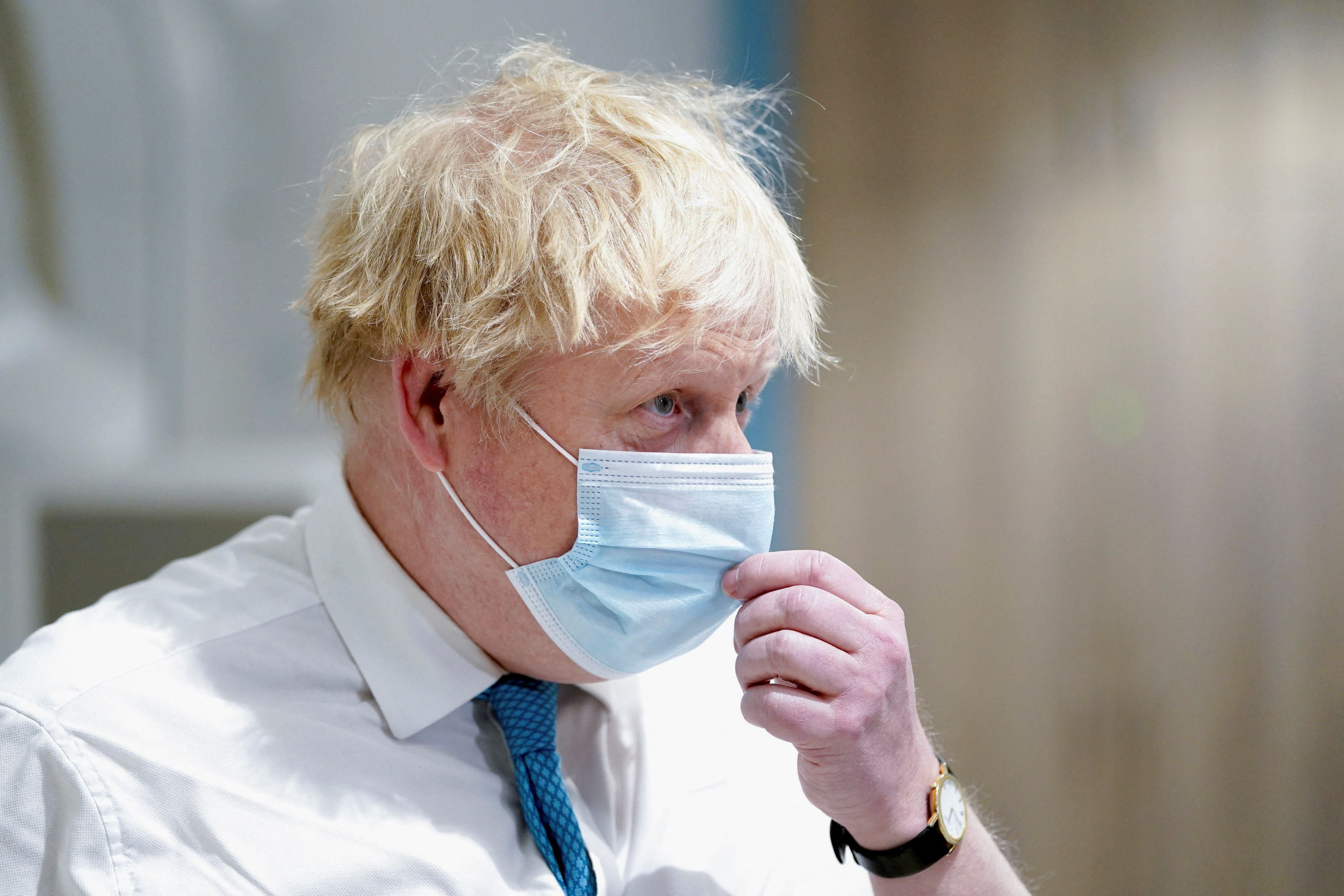Boris Johnson wanted to be injected with Covid live on TV, inquiry told
Covid inquiry also heard how Boris Johnson would rather ‘let the bodies pile high’ than order second lockdown
Boris Johnson wanted to be injected with Covid live on TV “to show it did not pose a threat”, his former chief of staff in Downing Street told the Covid inquiry.
Lord Edward Udny-Lister told the official probe into the handling of the pandemic that the ex-PM, who spent days in intensive care and almost died from the virus, that the then PM’s suggestion was “an unfortunate comment”. The comments were first reported in 2021 but confirmed by Lord Lister in Tuesday’s evidence.
His comments come as Britain’s top civil servant, Simon Case, said he had “never seen a bunch of people less well-equipped to run a country” when he joined Downing Street during the Covid pandemic.
In another day of explosive evidence, messages shown to the inquiry between the former No 10 permanent secretary and then cabinet secretary Lord Sedwill from July 2020 revealed Mr Case thought that his new colleagues were “mad”.
He went on: “Not poisonous towards me (yet), but they are just madly self-defeating,” adding that “top-drawer” staff were refusing to join No 10 because of “the toxic reputation of Boris Johnson’s operation”.
Previous messages shown to the official probe into the handling of the pandemic have revealed a culture of “nastiness, arrogance and misogyny” in Downing Street at the time.

At the end of Tuesday’s hearing, Mr Johnson’s former chief of staff Lord Lister told inquiry chair Baroness Hallett that WhatsApp messages shown as evidence so far were “appalling”.
On yet another shocking day of evidence, the Covid-19 Inquiry heard:
- Lord Lister confirmed previous reports the PM wanted to “let the bodies pile high” to avoid imposing a second Covid lockdown
- The former aide also confirmed Mr Johnson offered to be infected himself with Covid on TV to “demonstrate that it did not pose a threat”
- Further diary entries from chief scientific adviser Sir Patrick Vallance show Mr Johnson was often overruled by then chancellor Rishi Sunak
- The government’s Covid-19 taskforce was “blindsided” by Mr Sunak’s Eat Out to Help Out scheme
- Department of Health and Social Care (DHSC) staff were “not concerned” about infecting elderly people in care homes until months after the pandemic struck
Lord Lister also confirmed controversial comments by Mr Johnson that he would rather “let the bodies pile high” than impose another lockdown. Mr Johnson denied making the comment when the claim first emerged in 2021.
In his witness statement to inquiry, Lord Lister said he recalled Mr Johnson making the comment in September 2020. He said it was unfortunate but was made at a time when ministers were worried about “the already severe impact on the economy and education” from lockdowns.
Earlier on Tuesday, the head of the Cabinet Office’s Covid-19 taskforce revealed how he was “blindsided” by Mr Sunak’s Eat Out to Help Out scheme during the summer of 2020.
Asked by lead counsel Hugo Keith KC what the taskforce’s view was of the scheme, Simon Ridley said it was decided by the prime minister and chancellor and he had no input.

Asked whether he was concerned at not being asked about Eat Out to Help Out, Mr Ridley took a long pause, before saying: “Things happen that surprise.”
But asked whether he was “blindsided by the Treasury and there was nothing you could do”, he responded: “Correct.”
The inquiry also heard how DHSC staff were “not concerned” about discharging elderly people into care homes with Covid until months after the pandemic struck, the official pandemic probe has heard.
The inquiry was also shown an email thread between top No10 and Cabinet Office officials in April 2020, which revealed increasing fears about the spread of the pandemic in hospitals and care settings.
But, when asked by a member of the Covid-19 taskforce, a DHSC director said infections acquired in hospitals and spread into care homes were “not an issue of concern”.
It came as the probe laid bare the chaos surrounding government plans to discharge thousands of patients from hospitals into social care settings to free up capacity in the NHS.
Mr Keith KC pressed Mr Ridley over whether the testing capacity was in place to ensure those discharged were not infected with the virus.
Mr Ridley said there were “limitations” to testing capacity, but said “ultimately there needs to be a decision” and the government was striking a “balance”.
Data from the first wave of the pandemic showed care home residents in England were almost 20 times more likely to die than older people living in their own homes.
The discharge of Covid patients to care homes without testing was later ruled unlawful, with High Court judges finding the policy failed to take into account the risk to elderly and vulnerable residents from non-symptomatic transmission.
Mr Ridley told the inquiry on Tuesday: “We were, certainly in the Cabinet Office and in No 10 at the end of March and April, concerned to understand the position in care homes.
“I think it is true that those concerns were growing as we went into April.”
Mr Ridley was then asked by Mr Keith whether the Cabinet Office and No 10 had to “push” DHSC on the issue, saying: “Yes, that is broadly correct.”
The inquiry also saw more extracts from former chief scientific adviser Sir Patrick’s diaries, revealing his belief that Mr Johnson was often “undone” by his then chancellor.
Sir Patrick noted that Mr Johnson was seen as “owning the reality for a day” before being “buffeted by a discussion with Rishi Sunak”.
Join our commenting forum
Join thought-provoking conversations, follow other Independent readers and see their replies
Comments